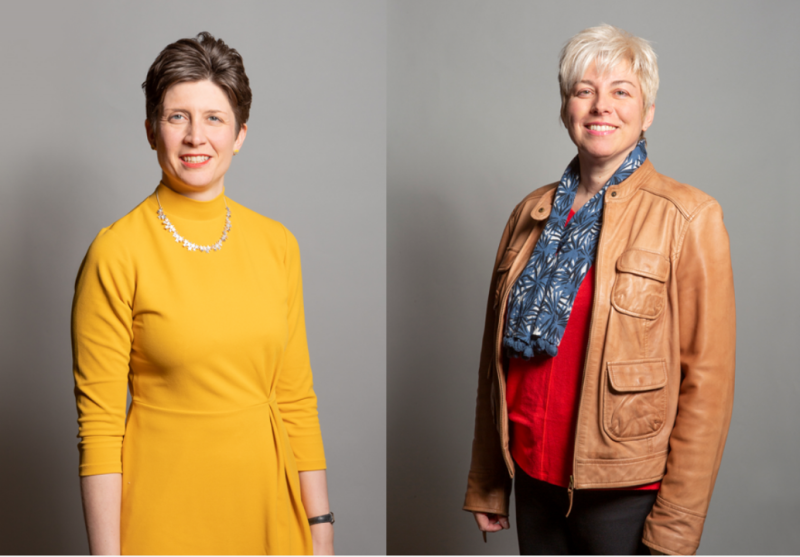In The News
The UK government has implemented stringent new rules aimed at significantly reducing net migration and addressing visa abuse, marking a decisive shift in immigration policy to tackle what it views as unsustainable levels of legal migration.
Among the key changes in social care, care workers are now prohibited from bringing dependants to the UK. This action is part of a broader initiative expected to cut the number of eligible people coming to the UK by around 300,000.
Christina McAnea, UNISON's general secretary, strongly criticises the government's plans. She labels these measures "cruel plans" that "spell total disaster for the NHS and social care. They benefit no one."
Particularly critical for McAnea and others critical of the new policy is the effect this may have in exacerbating the sector's already serious workforce shortage by deterring migrants from entering the UK social care system.
Simon Dedman and Nic Rigby at BBC News highlight the roughly 152,000 vacancies already existing in the sector, and the importance of foreign workers is illustrated quite clearly. Stow Healthcare reveal that around a quarter of all staff come from overseas.
However, despite concerns over the sector's staffing, social care has proved to be a significant contributor to the UK's recent record levels of immigration. The Migration Observatory at the University of Oxford points out that a total of 350,000 'Health and Care' visas, including dependants, were granted in 2023, overshadowing the 118,000 skilled visas issued in other sectors.
Furthermore, there are concerns about not just the numbers but the functionality of the visa system. Guy Dampier at The Telegraph reports on that about a quarter of foreign care workers may be employed illegally in industries other than care.
Yet, any attempt to reduce immigration must accompany expanding the domestic pipeline of carers. As part of this, Professor Brian Bell has highlighted a report by the Migration Advisory Committee which recommended improving social care pay, arguing for a higher minimum wage for care workers. Mithran Samuel at Community Care reports how such a policy is already in place in Scotland and Wales.
Despite this advice, the government has not responded to these recommendations in the last two years. Increasing the share of domestic workers in the sector will prove challenging without action on pay and improving conditions for those in social care.
Interview
This month we sat down with Alison Thewliss, shadow SNP spokesperson for home affairs, and Lia Nici, Conservative MP for Great Grimsby, regarding the ban on care workers’ dependants and the implications of immigration restrictions on staffing in the sector.

What are your views on the government’s ban regarding care workers’ dependants which a member of the BMA described as “unnecessarily cruel”?
Alison Thewliss: I would entirely agree with the BMA position. I think it’s most cruel to say that somebody should come from abroad to look after our loved ones but can’t bring their own. It will also dissuade people from coming because they don’t want to choose between their own family and coming to the UK. So, I think it’s going to have a severe impact on the ability of firms who can’t get that labour and on people who need care, who won’t be able to get somebody to look after them.
Lia Nici: People from abroad who bring their expertise play an important role and it is right to recognise this. However, our reliance on foreign workers is a stopgap and a symptom of a wider issue. Over 10 million working age adults in the UK are not in employment or training. We need to work towards getting Britons into work and ending our reliance on imported labour and a system that allows unemployed dependants to disproportionately put pressure on public services.
This current situation causes other countries to suffer a brain drain across their healthcare systems, which is unacceptable and unsustainable. We need to address the fundamental issues that have led us to rely so heavily on foreign workers, who could benefit their own societies as much as they benefit ours, while ensuring Britons are given the opportunity to work and contribute.
With at least 800 potential victims of modern slavery found in social care last year, do you believe further action is necessary to reduce exploitation?
Alison Thewliss: People have been able to come into this market to exploit people, and those within the system have been quite vulnerable. It’s incredibly challenging to speak out against those guaranteeing your visa, and should you do that, you have very little recourse to remain here.
So, this is a system both in care and other sectors like agriculture, where people have found themselves being exploited, and the UK government hasn’t asked enough questions of the employers that are doing this in the first place. There should be far more stringent checks on these companies, and the government should be more robust in dealing with this abuse. The people at the heart of this should not lose out; they have been victims of exploitation and should be supported.
I think it’s most cruel to say that somebody should come from abroad to look after our loved ones but can’t bring their own
Lia Nici: Modern slavery is a shocking crime, and I am proud of what the government has done to tackle it. The Modern Slavery Act 2015 has transformed our response, significantly increasing law enforcement activity against the criminals behind this. Since 2016, £15 million has been invested to strengthen the police response through the Modern Slavery and Organised Immigration Crime Programme. This has also driven improvements in the police’s understanding of modern slavery and built new capabilities to combat organised immigration crime. Prosecutions have increased: in 2021, 466 individuals were prosecuted for modern slavery crimes, with more than 70% convicted. Our response to modern slavery should be to tackle it wherever it occurs and not to bend to the criminal gangs who run these rackets.
How would you address concerns that lower immigration could result in further understaffing?
Alison Thewliss: The Migration Advisory Committee (MAC) observed that Scotland is less reliant on migrant labour in the sector because of higher wages for people coming into social care compared to other professions that people might go to. Consequently, they can attract people and be less reliant on migrant labour. The MAC recommended to the UK government that what’s missing is a policy whereby people in health and social care are given a good wage and a clear means of progressing. At the moment, you can work in a supermarket with far less responsibility and better hours than in a care home, so naturally people do that. I think it’s a strong recommendation, which would reduce the need for migrant labour and attract more people into the sector.
We need to work towards getting Britons into work and ending our reliance on imported labour
Lia Nici: Creating effective educational and vocational pathways for young people in the UK is an important measure we need to take to support our social care services. As someone with 22 years of experience as an educator, I know the value that practical experience and professional support can have for young people considering their careers. It’s crucial that we champion vital sectors of our healthcare system, such as social care, as places where young adults and those starting out in their careers can make a real impact and learn important skills which will support them through life.
Can more accessible paths like apprenticeships replace the need for foreign labour?
Alison Thewliss: We need to encourage more young people to see this as a promising career for them and an area where they can have a rewarding career over many years. I think more people should recognise the incredibly tough work that is done in this field. I would very much encourage apprenticeships, but these need to be properly paid too, because if firms are only paying the apprenticeship minimum wage, that makes it very difficult for people to come into that role and fulfil those difficult hours and demanding tasks that are being asked of them. So there needs to be a recognition of people’s responsibilities, and yes, apprenticeships are a good route, but they should be fairly paid.
Lia Nici: This is exactly the route that I’m championing in Parliament. A couple of weeks ago, I presented my proposal for a policy that would directly tackle skills shortages in our public sector. I suggested that students be given the opportunity to study quality, accredited courses which directly relate to the skills we need in our NHS and other services, rewarding those who sign up to help our country by writing off their student loans. I believe that we need to address skills shortages by investing in our young people, by providing them with easier access to high-quality courses which will give them the ‘hard’ and ‘soft’ skills they need to succeed.



